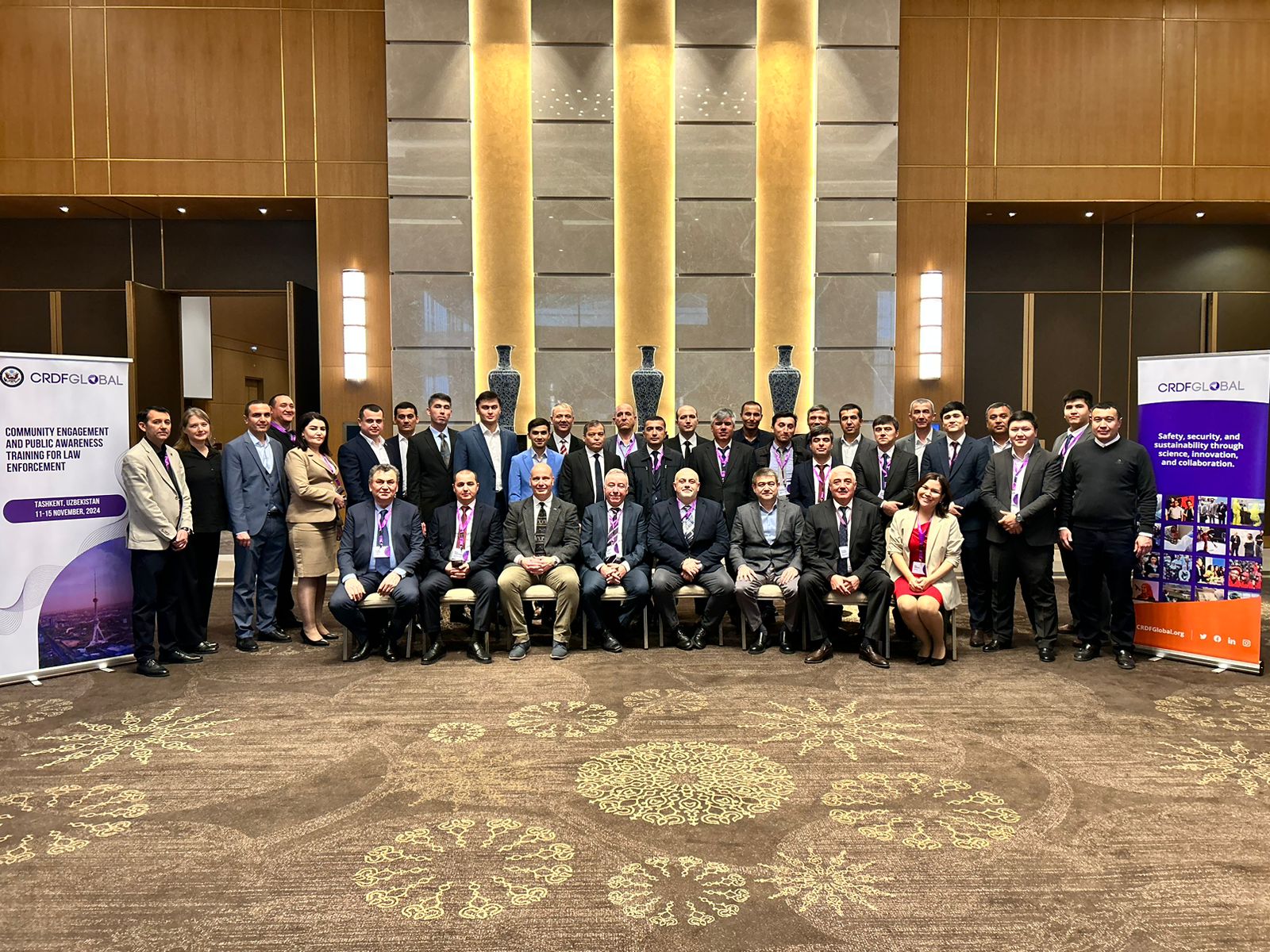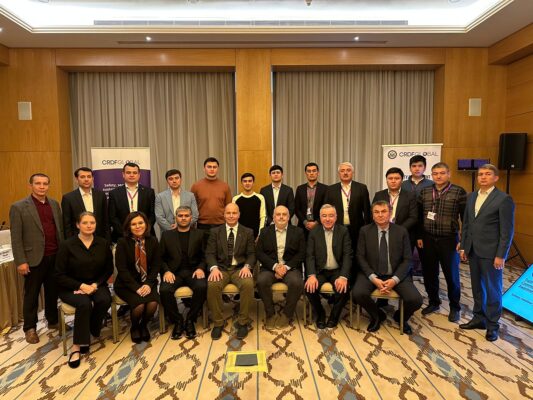Strengthening Chemical Security: CRDF Global Completes Regional Training for Uzbekistan and Tajikistan

CRDF Global, on behalf of the U.S. Department of State’s Nonproliferation and Disarmament Fund (NDF), has successfully conducted a groundbreaking five-day training program in Tashkent, the Republic of Uzbekistan. This initiative aimed to bolster chemical security through enhanced community engagement and public awareness, marking a significant milestone in the region’s efforts to combat chemical threats.
The program included a three-day community engagement and public awareness training for law enforcement, government agencies, and industry representatives. This was followed by a two-day “train-the-trainer” session designed to equip a select group of participants with advanced skills and tools for disseminating chemical security practices within their respective organizations and communities.
Expert-Led Training to Address Chemical Threats
International subject matter experts Michael M. Cutone and Brian Beliveau of Trinity Project, alongside Dr. Bassam Hayek, led the training, focusing on:
- Enhancing community outreach to identify and mitigate chemical threats.
- Promoting public-private partnerships for chemical security.
- Developing practical strategies to improve vigilance and flag suspicious activities.
Through interactive workshops, role-playing exercises, and scenario-based crisis coordination, participants gained practical skills to foster collaboration and communication within and across borders.

Regional Collaboration Highlights
Mr. Otabek Kasimov, Head of Department of the Committee for Industrial, Radiation, and Nuclear Safety of Uzbekistan, underscored the importance of public-private partnerships in mitigating security threats. He highlighted the government’s proactive engagement with industry and communities to build a robust chemical security framework.
Similarly, Mr. Matin Akhmedov, Deputy Director of Tajikistan’s CBRN Safety and Security Agency, emphasized the critical need for regional cooperation in addressing chemical security challenges. He praised the collaboration between Uzbekistan and Tajikistan over the past two years and expressed optimism about future joint efforts.
Building Capacity for Sustainable Impact
The final two days of the program were dedicated to training a select group of participants to become trainers. These sessions emphasized advanced presentation techniques, outreach strategies, and communication tactics. The goal is to establish a sustainable network of trainers capable of leading future initiatives and reinforcing chemical security awareness across Uzbekistan and Tajikistan.

Looking Ahead
This training marks an essential step toward strengthening chemical security in Central Asia. With continued support from the U.S. Department of State and CRDF Global, Uzbekistan and Tajikistan are poised to enhance their preparedness and resilience against chemical threats.



